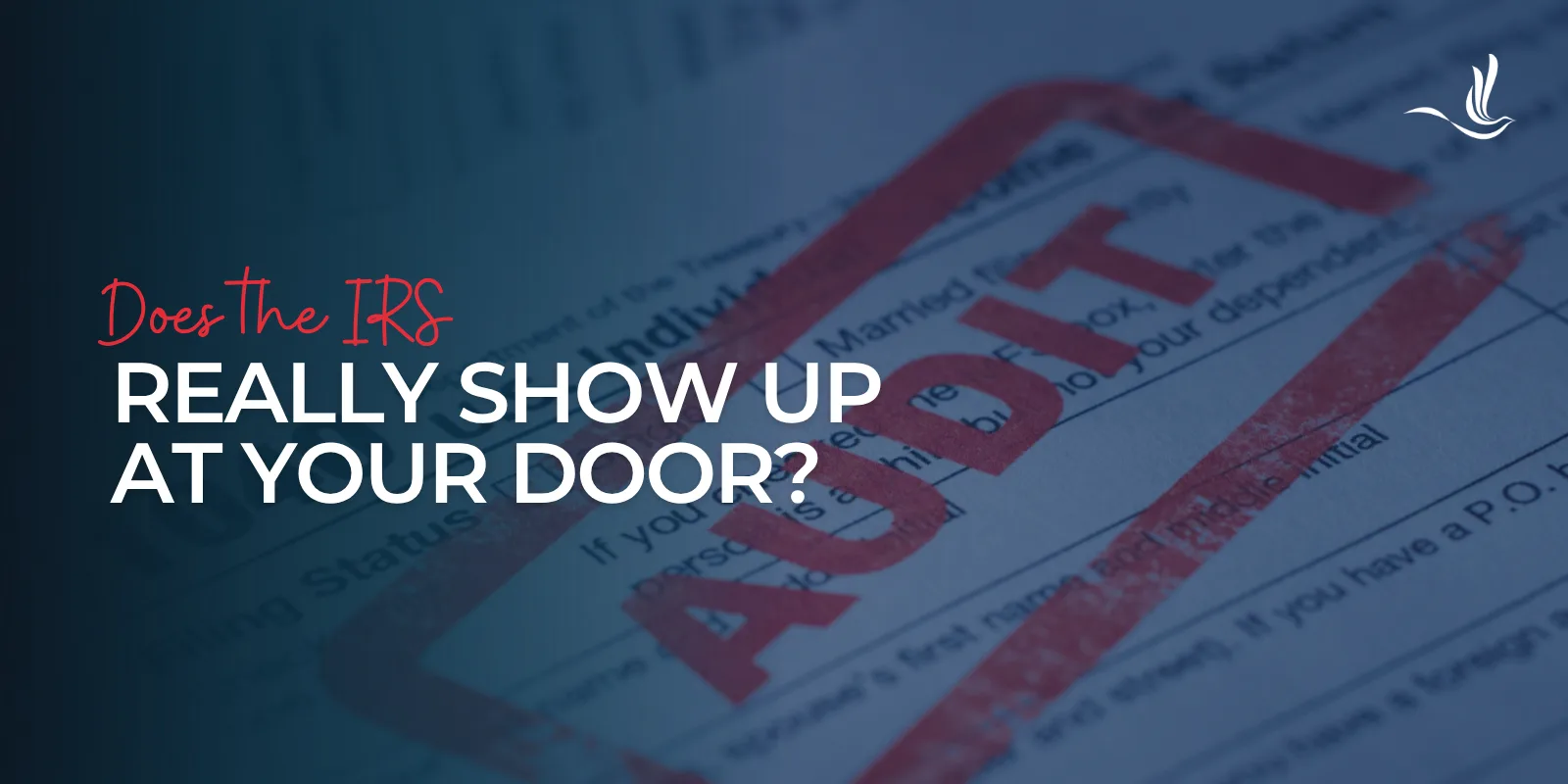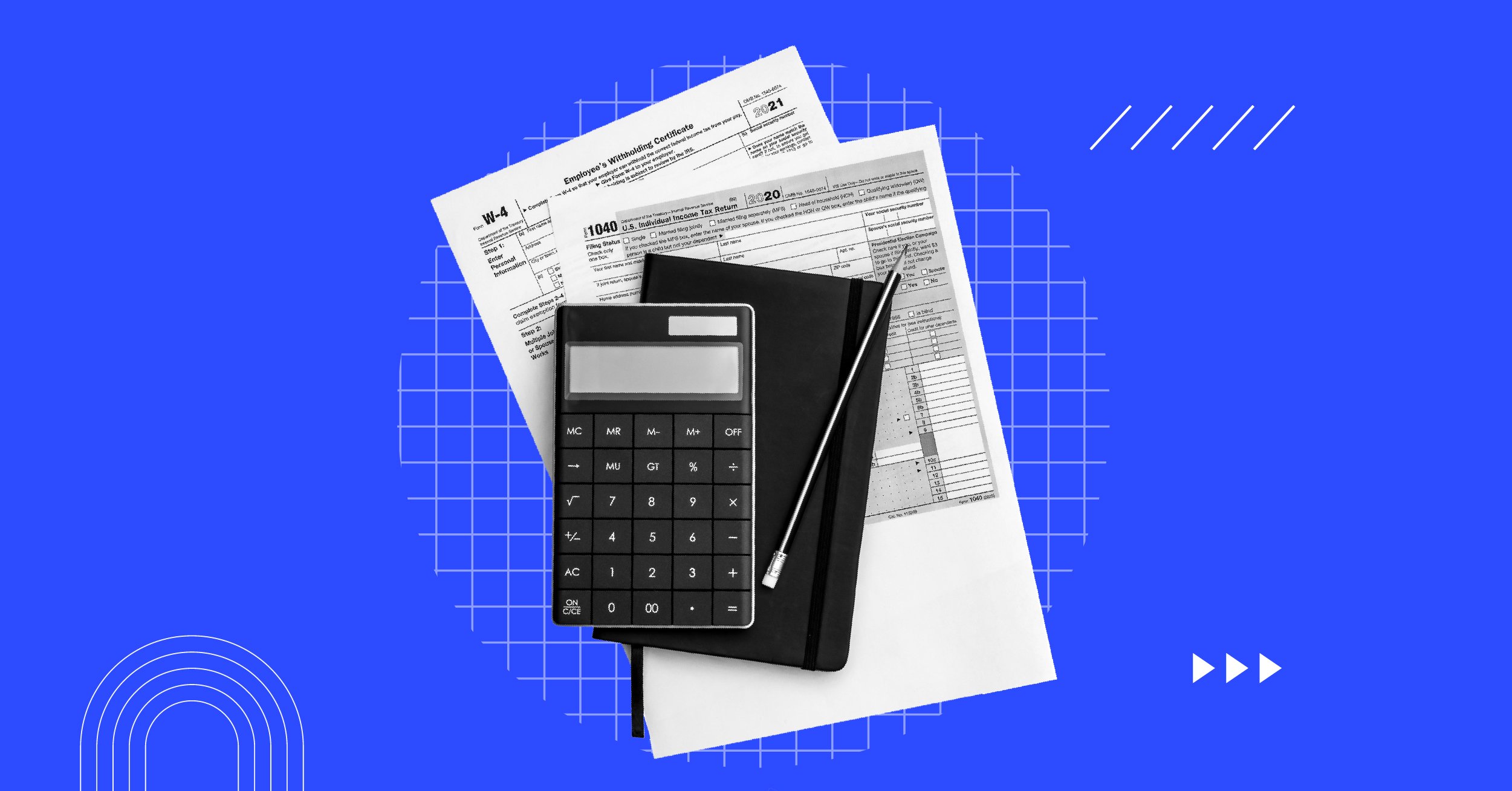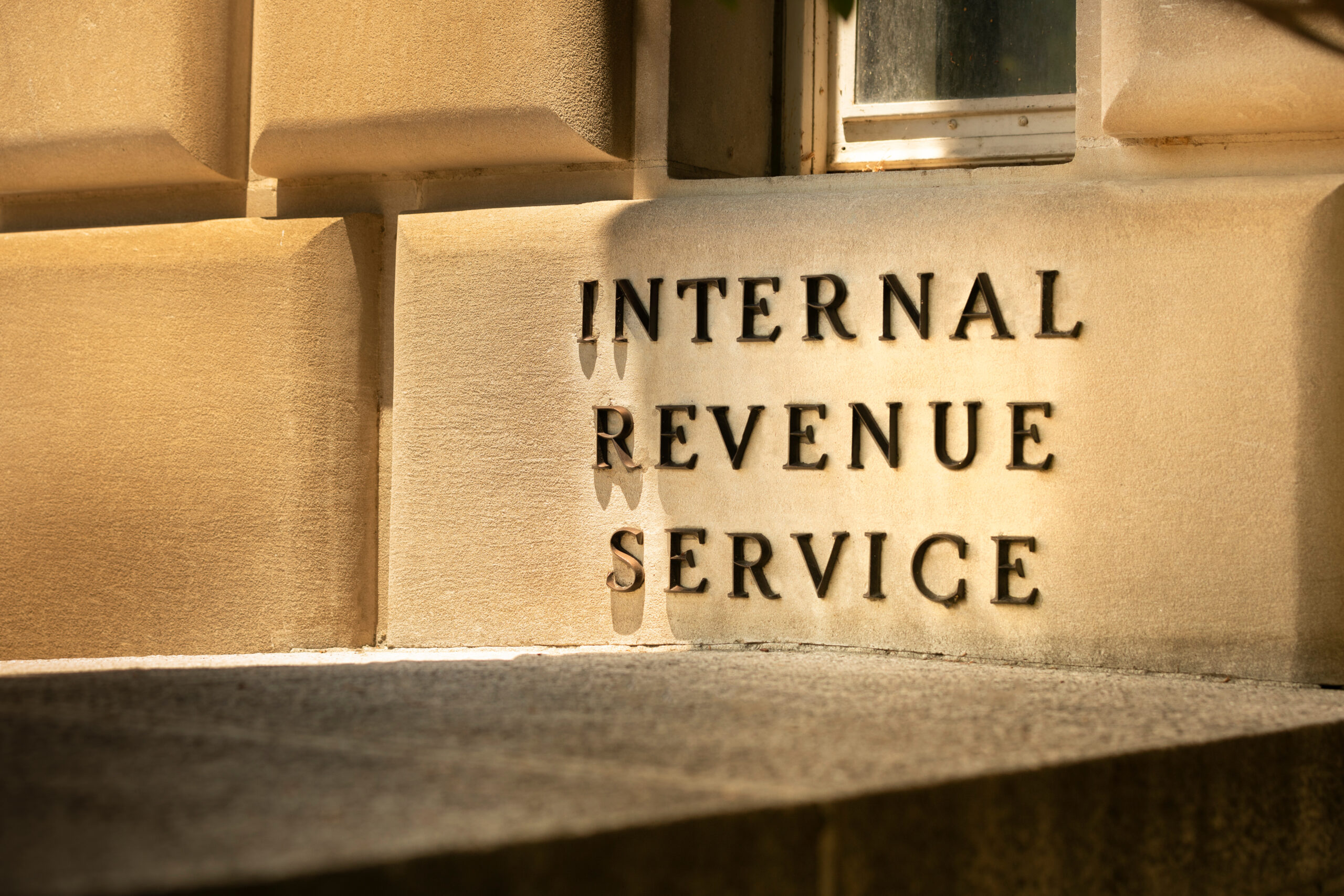Key Takeaways:
In most cases, the IRS no longer shows up at your door unannounced. Since 2023, field visits are typically scheduled in advance via Letter 725-B.
Unscheduled in-person visits still occur in rare cases involving criminal investigations, summons delivery, or extreme noncompliance.
IRS agents carry two forms of ID: a pocket commission and a government-issued badge. Taxpayers should always request to see these.
Legitimate IRS agents will never demand immediate payment, make threats, or ask for gift cards or digital transfers.
If contacted, you have the right to verify the agent’s identity and consult a tax professional before continuing any discussion.
Scam alerts remain critical: report suspicious visits to TIGTA, the IRS, or the FTC to protect yourself and others from impersonators.
If you’re a taxpayer, few things sound more terrifying than hearing a knock at your door, only to find someone claiming to be from the IRS. But does the IRS really show up at your door? In recent years, the Internal Revenue Service has changed its procedures to reduce confusion and increase taxpayer safety. That includes a major shift in how, and whether, IRS agents conduct in-person visits. Let’s take a look at when the IRS might visit you at home or your business, how to tell if it’s really them, and what you should do if it happens.
Unannounced IRS Visits Are Mostly a Thing of the Past
Here’s what changed in 2023 and what it means for taxpayers today.
The Major Policy Shift
In July 2023, the IRS announced a sweeping change in how it interacts with taxpayers: revenue officers would no longer make unannounced visits to homes or businesses in the vast majority of cases. This move, described as a “common-sense step” by then-Commissioner Daniel Werfel, was intended to protect both taxpayers and IRS employees.
For decades, it was common for revenue officers (those responsible for collecting unpaid taxes or securing unfiled returns) to show up unannounced at a taxpayer’s door. But in today’s environment of scams, impersonation schemes, and heightened security concerns, this practice became more of a liability than a benefit.
What Replaced Surprise Visits
Rather than dropping in unannounced, IRS revenue officers now contact taxpayers in advance via mail. Specifically, the IRS uses Letter 725-B, which is an official document that invites the taxpayer to schedule a face-to-face meeting.
The purpose of this change is to eliminate fear and uncertainty surrounding IRS field visits. By relying on mailed notices, the IRS ensures that taxpayers are informed and have time to prepare, often with the help of a tax professional or legal representative.
When Can the IRS Still Show Up at Your Door?
While most surprise visits are over, there are still a few situations where agents may appear in person. The IRS’s new policy does not eliminate all door-to-door interactions. There are certain, limited circumstances in which an IRS agent might still appear at your residence or place of business.
Criminal Investigations (IRS-CI)
The most serious type of in-person IRS visit involves IRS Criminal Investigation (CI) agents. These agents investigate tax fraud, money laundering, and other federal crimes. If you’re the subject of a CI investigation, a visit from a special agent could come with a warrant or subpoena.
For example, if someone is suspected of running a fraudulent tax return scheme or hiding assets in offshore accounts, IRS-CI may visit without prior notice. They are law enforcement officers and may be armed, depending on the case. These visits are rare and highly targeted. Most taxpayers will never deal with the criminal investigation division.
Summons Delivery or Legal Document Service
The IRS still reserves the right to deliver summonses or legal notices in person. A summons might be issued if the agency needs records or testimony and prior requests have gone unanswered. If you receive such a visit, the IRS agent should be delivering paperwork—not collecting money or making threats. You are within your rights to verify their identity and ask for time to respond appropriately.
Cases of Severe Noncompliance
In rare situations, a revenue officer may still make a field visit if a taxpayer has failed to respond to repeated outreach efforts by mail or phone. For instance, if a business owes payroll taxes and has ignored multiple IRS letters, a revenue officer might visit to prompt urgent action. That said, these are now the exception, not the rule. In most cases, the IRS will exhaust other communication methods before showing up in person.
How to Tell If It’s Really the IRS at Your Door
With scams on the rise, knowing how to identify a legitimate IRS agent is essential. Tax scams are a multi-million-dollar industry, and scammers frequently impersonate IRS officials to intimidate victims into sending money or personal information. That’s why it’s critical to know the signs of a real visit versus a fraudulent one.
Official Credentials to Look For
All IRS agents, including revenue officers and criminal investigators, carry two forms of official ID:
A pocket commission issued by the Department of the Treasury.
A government-issued photo ID badge showing their name and position.
You are entitled to ask to see both forms of ID. You can also verify an agent’s identity by contacting the IRS directly at 800-366-4484 or using IRS contact numbers found on their official website.
What IRS Agents Will (and Won’t) Do
Legitimate IRS agents will never:
Demand payment by prepaid debit card, gift card, or wire transfer.
Threaten immediate arrest or deportation.
Refuse to show ID or provide verification.
They will:
Offer you the opportunity to verify their identity.
Provide a clear explanation of the visit’s purpose.
Accept payment only through official IRS payment channels, not on the spot in cash.
If someone is at your door claiming to be from the IRS and acting aggressively, it’s best to not engage further until you’ve verified their identity.
What to Do If an IRS Agent Visits Your Home or Business
Even if it’s a legitimate visit, you have rights and options. No one likes surprise visits from government agencies. However, staying calm and knowing your rights can help you navigate the situation confidently.
Stay Calm and Ask Questions
If an agent is at your door:
Politely request to see their credentials.
Ask for a business card and written documentation explaining why they’re there.
Take notes about what’s discussed, including names, times, and any requests made.
You’re allowed to ask for time to review the matter or reschedule a more formal meeting.
You Don’t Have to Go It Alone
You always have the right to involve your tax professional, enrolled agent, CPA, or tax attorney. If you’re not comfortable handling the conversation alone, let the agent know that you’ll follow up with your representative.
For example, if you receive Letter 725-B in the mail and it proposes a meeting, you can ask your CPA to attend or reschedule it to a time when they’re available. You are not required to speak with the IRS agent immediately, especially if you feel unprepared or uncomfortable.
How to Protect Yourself from IRS Scams
The end of most unannounced visits helps, but scammers are still out there. Even with the IRS’s new approach, fraudsters continue to impersonate government officials. That includes door-to-door tax scams, fake calls, emails, and text messages.
Top Red Flags of a Scam Visit
Be cautious if:
The person at your door pressures you to pay immediately.
They refuse to show ID or say it’s “not necessary.”
They ask for payment via Venmo, Zelle, or other peer-to-peer apps.
They make threats involving jail time, deportation, or police involvement.
Real IRS agents will not act this way.
How to Report a Suspicious Encounter
If you suspect someone is impersonating the IRS, take these steps:
Do not provide any personal or financial information.
Call the Treasury Inspector General for Tax Administration (TIGTA) at 800-366-4484.
Report phishing emails to [email protected].
File a complaint with the Federal Trade Commission (FTC) at reportfraud.ftc.gov.
IRS impersonation scams are serious crimes and reporting them helps protect others.
Frequently Asked Questions
Can the IRS show up at your house unannounced?
In most cases, no, the IRS no longer makes unannounced visits to taxpayers’ homes. Since July 2023, revenue officers are required to send a mailed appointment letter (typically Letter 725-B) before attempting in-person contact.
What should I do if the IRS shows up at my house?
Stay calm, ask to see both forms of official IRS ID (badge and pocket commission), and do not provide personal or financial information until their identity is verified. You have the right to request time to consult a tax professional or reschedule the meeting.
Why would the IRS show up at your door?
The IRS may still visit in person for criminal investigations, delivering legal summonses, or in rare cases involving severe tax noncompliance. These situations are exceptions and not part of standard IRS procedure.
What triggers an IRS criminal investigation?
IRS Criminal Investigation (CI) cases are triggered by suspected tax fraud, evasion, money laundering, or other financial crimes. These investigations involve special agents and may result in criminal charges.
Who gets audited by the IRS the most?
High-income earners, low-income taxpayers claiming the Earned Income Tax Credit (EITC), and self-employed individuals face the highest audit rates. The IRS targets these groups due to potential errors, fraud risk, or complex returns that may yield more tax revenue.
How far back can the IRS investigate you?
The IRS can typically audit tax returns going back three years, but if substantial errors or fraud are suspected, they can look back six years or more. There is no time limit in cases of willful tax evasion.
Tax Help for Those Being Audited
So, does the IRS really show up at your door? In today’s system, very rarely. The agency has moved toward transparency and security, giving you more time and information to handle tax issues properly. If you do receive a visit, don’t panic. Verify the agent’s identity, understand your rights, and consider working with a tax professional to protect your interests. Optima Tax Relief has over a decade of experience representing clients during IRS tax audits.
If You Need Tax Help, Contact Us Today for a Free Consultation



























